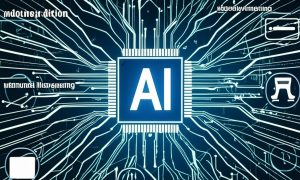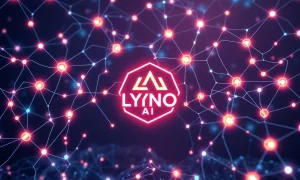Artificial intelligence faces a critical challenge: how to balance powerful pattern recognition with transparent reasoning. Hybrid AI emerges as the groundbreaking solution that bridges this gap. This innovative approach combines the best of both worlds, creating systems that learn from data while maintaining logical clarity.
What Exactly is Hybrid AI?
Hybrid AI represents a sophisticated framework that integrates multiple artificial intelligence methodologies. It typically merges symbolic AI with machine learning techniques. Symbolic AI provides structured knowledge representation through explicit rules and logic. Meanwhile, machine learning models handle pattern recognition from complex datasets.
Why Hybrid AI Matters Now
Traditional AI approaches show significant limitations in real-world applications. Pure machine learning models often operate as black boxes. Conversely, rule-based systems struggle with ambiguity and adaptability. Hybrid AI addresses these issues effectively:
- Enhanced explainability through symbolic reasoning components
- Superior flexibility from machine learning adaptation
- Improved efficiency in resource utilization
- Greater robustness against data variations
How Hybrid AI Systems Operate
These systems employ a modular architecture with distinct functional layers. The perception layer processes raw data using neural networks. Knowledge representation utilizes symbolic structures like knowledge graphs. Reasoning engines apply logical inference rules. Learning mechanisms continuously update models based on new information.
Key Applications of Hybrid AI
Healthcare organizations leverage Hybrid AI for diagnostic accuracy. Financial institutions use it for fraud detection and compliance. Autonomous vehicles depend on it for safe navigation. Legal firms apply it for document analysis and regulatory adherence.
Significant Benefits of Hybrid AI
This approach delivers measurable advantages across multiple dimensions. Accuracy improvements come from combined methodologies. Generalization capabilities enhance with symbolic guidance. Transparency builds trust in critical applications. Adaptability allows continuous system evolution.
Current Challenges in Hybrid AI
Implementation faces several technical hurdles. Integration complexity requires careful engineering design. Data representation must bridge different paradigms. Scalability demands substantial computational resources. Expertise needs span traditional and modern AI disciplines.
The Future Landscape of Hybrid AI
Leading technology companies increasingly invest in hybrid approaches. Research institutions focus on neuro-symbolic integration techniques. These developments push toward artificial general intelligence capabilities. Industry adoption continues accelerating across sectors.
Frequently Asked Questions
What makes Hybrid AI different from traditional AI?
Hybrid AI uniquely combines data-driven learning with logical reasoning. Traditional approaches typically excel in one area but lack balanced capabilities.
Which industries benefit most from Hybrid AI?
Healthcare, finance, automotive, and legal sectors show particularly strong applications. Any field requiring both pattern recognition and explainable decisions benefits.
How does Hybrid AI improve transparency?
Symbolic components provide clear reasoning pathways for decisions. This contrasts with opaque neural network operations in pure machine learning.
What technical skills are needed for Hybrid AI development?
Teams require expertise in both symbolic systems and machine learning. Knowledge representation and neural network training are essential skills.
Is Hybrid AI more expensive to implement?
Initial development costs may be higher due to complexity. However, long-term benefits often justify the investment through improved performance.
How quickly is Hybrid AI adoption growing?
Adoption rates accelerate rapidly as technology matures. Major enterprises increasingly prioritize hybrid approaches for critical applications.














